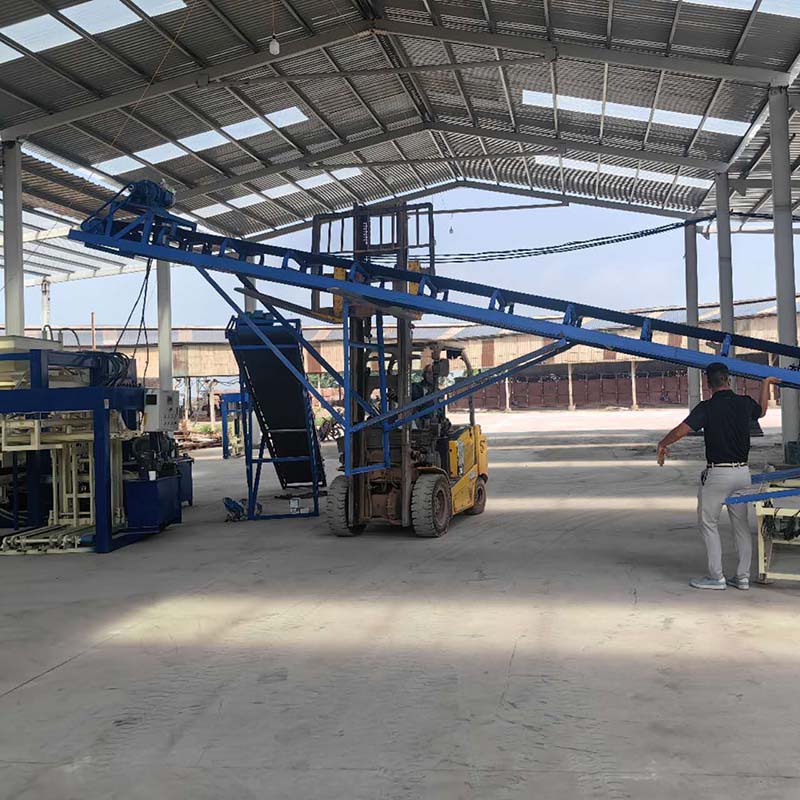
Image source Aiwei block machine
Introduction
The construction industry has undergone significant advancements in recent years, embracing technological innovations to improve efficiency and productivity. One such innovation is the use of brick making machines in construction projects. These machines have revolutionized the traditional brick-making process by automating various stages and streamlining production. In this article, we will explore the economic implications of using brick making machines in construction, highlighting the benefits they offer in terms of cost savings, increased productivity, and sustainable development.
Cost Savings
One of the key economic advantages of utilizing brick making machines in construction is the potential for significant cost savings. Traditional brick-making methods require substantial labor, resulting in higher wage expenses. In contrast, brick making machines automate the production process, reducing the reliance on manual labor and consequently cutting down labor costs. With machines handling tasks such as mixing, molding, and stacking, fewer workers are needed to complete the same amount of work.
Moreover, brick making machines also optimize the use of raw materials, minimizing waste and reducing expenses. These machines are designed to produce bricks with precision and consistency, resulting in a higher yield of usable bricks compared to traditional methods. The ability to control the dimensions and quality of bricks ensures that materials are utilized efficiently, eliminating the need for additional resources to compensate for irregularities. This streamlined approach leads to substantial cost savings, making brick making machines an economically viable choice for construction companies.
Increased Productivity
Another significant economic implication of using brick making machines in construction is the notable increase in productivity. Manual brick-making processes are labor-intensive and time-consuming. However, the automation provided by brick making machines drastically accelerates the production rate, allowing for faster completion of projects.
By automating key tasks, such as mixing and molding, brick making machines enable the continuous production of bricks at a consistent pace. This not only eliminates delays caused by human limitations but also ensures a steady supply of bricks to meet construction demands. The ability to produce bricks on-site reduces the reliance on external suppliers and minimizes transportation costs, further enhancing productivity.
Additionally, brick making machines can operate continuously, 24 hours a day, without the need for breaks or rest periods. This round-the-clock operation maximizes efficiency, allowing construction projects to progress rapidly. The increased productivity facilitated by these machines not only speeds up project timelines but also leads to significant cost savings due to reduced labor expenses and improved resource management.
Sustainable Development
Sustainability has become a crucial consideration in modern construction practices, driven by environmental concerns and the need for long-term resource conservation. Brick making machines offer several advantages that contribute to sustainable development and have positive economic implications in the long run.
Firstly, these machines facilitate the use of alternative building materials, such as recycled aggregates and industrial by-products. By incorporating such materials into the brick-making process, construction companies can reduce their dependence on traditional raw materials, which are often obtained through resource-intensive extraction processes. This shift not only minimizes environmental impact but also leads to cost savings by utilizing readily available and cost-effective materials.
Furthermore, brick making machines often employ energy-efficient technologies to power their operations. Advanced models utilize electric motors or hybrid systems, reducing reliance on fossil fuels and lowering carbon emissions. The long-term cost savings resulting from reduced energy consumption make these machines an economically attractive option for construction companies.
Moreover, brick making machines enable the production of bricks with higher precision and quality, resulting in more durable structures. Buildings constructed with superior-quality bricks have a longer lifespan, reducing the need for frequent repairs or reconstructions. This longevity translates into substantial cost savings over time, benefiting both the construction industry and the economy as a whole.
Employment and Skill Development
While the adoption of brick making machines may reduce the demand for manual labor in certain aspects of construction, it also presents opportunities for employment and skill development in other areas. The operation, maintenance, and supervision of brick making machines require skilled workers who possess technical expertise in operating and troubleshooting these machines.
As construction companies invest in brick making machines, they can allocate resources towards training and upskilling their workforce. This ensures that employees can adapt to the changing industry demands and remain employable. The growth of the brick-making machine sector can also create new job opportunities in manufacturing, servicing, and repair, leading to job creation and economic development.
Conclusion
The economic implications of using brick making machines in construction are profound and multifaceted. These machines offer substantial cost savings by reducing labor expenses and optimizing resource utilization. They also enhance productivity by accelerating construction timelines and ensuring a steady supply of bricks. Furthermore, brick making machines contribute to sustainable development by utilizing alternative building materials, employing energy-efficient technologies, and constructing durable structures.
While there may be initial investments required to acquire and deploy brick making machines, the long-term economic benefits outweigh the costs. The construction industry stands to gain from increased efficiency, reduced expenses, and improved environmental stewardship. As technology continues to evolve, embracing innovative solutions like brick making machines will play a pivotal role in shaping a sustainable and economically vibrant construction sector.
